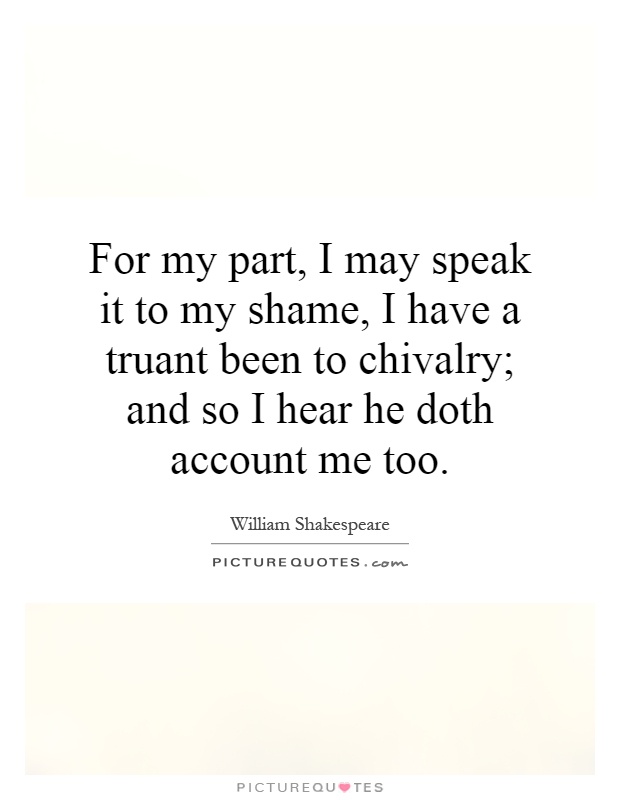For my part, I may speak it to my shame, I have a truant been to chivalry; and so I hear he doth account me too

For my part, I may speak it to my shame, I have a truant been to chivalry; and so I hear he doth account me too
The quote "For my part, I may speak it to my shame, I have a truant been to chivalry; and so I hear he doth account me too" is from William Shakespeare's play "Henry IV, Part 1." In this line, the character of Prince Hal is reflecting on his own behavior and acknowledging that he has not lived up to the ideals of chivalry.Chivalry was a code of conduct followed by knights in medieval Europe, emphasizing honor, bravery, and loyalty. It was seen as a noble and virtuous way of life, and those who adhered to its principles were respected and admired. However, Prince Hal admits that he has not been true to these ideals, and he is aware that others, including his father King Henry IV, see him as lacking in chivalrous qualities.
This self-awareness and admission of fault is a key aspect of Prince Hal's character development throughout the play. At the beginning of "Henry IV, Part 1," he is portrayed as a wayward prince who spends his time carousing with lowlifes like Falstaff and neglecting his responsibilities as heir to the throne. However, as the play progresses, Prince Hal begins to show signs of maturity and growth, eventually proving himself to be a worthy leader and warrior.
The quote also highlights the theme of appearance versus reality in the play. While Prince Hal may have appeared to be a truant to chivalry on the surface, his true nature is more complex. He is capable of great deeds and displays of honor, as demonstrated in his eventual victory over Hotspur in battle.
Overall, this quote from "Henry IV, Part 1" serves as a moment of introspection for Prince Hal, as he grapples with his own shortcomings and strives to live up to the ideals of chivalry. It is a pivotal moment in his character arc, setting the stage for his transformation into the noble and heroic King Henry V.












 Friendship Quotes
Friendship Quotes Love Quotes
Love Quotes Life Quotes
Life Quotes Funny Quotes
Funny Quotes Motivational Quotes
Motivational Quotes Inspirational Quotes
Inspirational Quotes